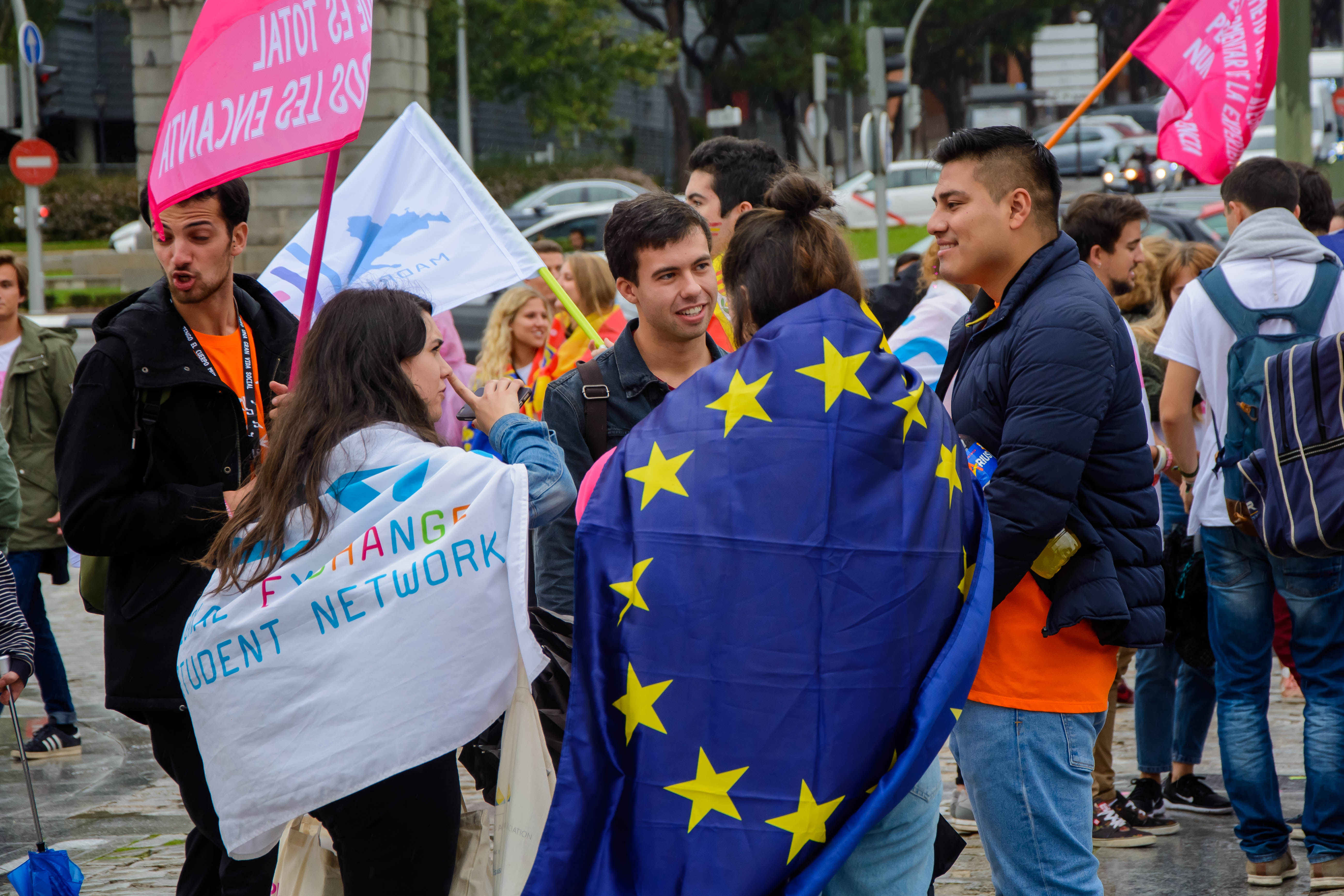
In the 2014 European Elections, only 28% of people aged 18-24 voted. Despite the overall turnout of young voters, the Erasmus Voting Assessment has proven that mobile youth was 3 times more likely to vote.
To further understand the situation and find out which conditions and interventions at universities contribute to active citizenship of young Europeans, through the research “ESNsurvey 2019 - Active citizenship and student exchange in light of the European elections” we assessed their approach and views towards voting, with a focus on the European elections.
“The European Elections that took place in May 2019 granted the perfect background for this study. It is relevant to understand the attitudes and behaviours of the European youth - and in particular the Erasmus Generation - towards this event. I am very confident that the results will be very useful for a variety of governmental and non-governmental stakeholders. This research is a result of the great effort put forward by our 15,000 volunteers which are part of our 530 local associations operating in 41 countries across Europe.” - Kostis Giannidis, President of the Erasmus Student Network 2019-2020
Through our online campaign, promoting the participation in elections and the ESNsurvey we managed to reach 3,800.243 people that helped with the overall turnout of young people at the European elections - 50.6%, the highest since 1994.
On the 8th of October, in the European Parliament, during the launch of the ESNsurvey research report, we discussed key-findings and recommendations with around 80 participants from civil sector organisations and decision-makers. During the conference moderated by the Culture and Policy Assistant of the Erasmus Student Network, Angela Russo, we touched upon topics such as democratic participation of youth and students beyond the EU elections, digital democracy, as well as non-formal learning environments for citizenship education.
Today at the @Europarl_EN we are launching the #ESNsurvey2019, a Europe-wide #research report, measuring the impact of @EUErasmusPlus and other exchange programmes on the civil, social and political #participation of young people in Europe. ️https://t.co/bHZ3APAiou pic.twitter.com/oVWVJ3th4x
— ESN International (@ESN_Int) October 8, 2019
Key findings: Every four in ten respondents do not know what civil participation is; Online participation is more prevalent among young people; Students do not feel very informed about the work of civil society organisations on the European level; Students with an exchange experience are far more engaged in civil society organisations than the average European youth; 30% of respondents feel very or quite informed about the European Parliament’s work; Students who are on exchange vote less; Erasmus+ Alumni have higher interest and are more likely to vote in European elections than the European average; EU students with an exchange experience wish for more rights as EU citizens and for more European civic education in schools.
We had the pleasure to learn about the outcomes of the “This Time I’m Voting” campaign from European Parliament DG COMM Laura Popa who also acknowledged the efforts of young people and volunteers that contributed to the success of the campaign. Moreover, MEP Brando Benifei spoke about youth and active citizenship, where he called for more funding that would make the Erasmus programme more inclusive and accessible. We had a panel discussion about “Active citizenship of mobile students beyond elections” with MEP Josianne Cutajar, Sebastian Berger, Vice-President of the European Students' Union, Elisa Lironi, Senior European Democracy Manager of the European Citizen Action Service and Kostis Giannidis, President of the Erasmus Student Network.
A panel discussion about "Active citizenship of mobile students beyond elections" with @josiannecutajar @GiannidisKostis @Sebastian_BRG @ElisaLironi ️ Live at https://t.co/rd5XxB5h3Z pic.twitter.com/8ul5clsuaK
— ESN International (@ESN_Int) October 8, 2019
Gathering a combined total of almost 20,000 responses has only been possible thanks to the help of all the local organisations of the Erasmus Student Network and the support of many other associations and institutions active in the field of international education. ESN wishes to thank the representatives of the European Commission for their kind and highly appreciated the support offered to the ESNsurvey project. Our gratitude goes to all the National Erasmus+ Agencies and Higher Education Institutions that helped us promote this important research project of ESN to their students and members to reach a higher and more diverse audience.
Before the conference, we organised the ErasmusUpgrade training, with the purpose of educating ESN volunteers and member country representatives about topics related to the internationalisation of HE and the priorities of the new Erasmus+ programme, with help from experts from the International Cooperation Unit of the DG EAC of the European Commission, Adrian Veale, and from the External Action Service, Pietro de Matteis. We also held a session dedicated to the role of the Erasmus+ Alumni and how they can contribute as Erasmus+ ambassadors in improving the Erasmus programme. Moreover, Giorgio Marinoni from the International Association of Universities presented their final survey on the internationalisation of higher education.
The ESNsurvey and ErasmusUpgrade training benefited from a grant called “Erasmus in Action”, funded by the Erasmus+ Programme through the Belgian-Flemish Agency for Youth, JINT. It also received support from the grant “Erasmus Participation in Elections”, from the European Parliament. The ESNsurvey final report is a product of countless days of work of the ESNsurvey team, composed of ESN members from different countries and cultures. It consists of Robert Banet (Poland), ESNsurvey Project Manager 2018/2019, Nata Japiashvili (Georgia), Kyriaki Rousou (Cyprus), Tina Kristina Katava (Croatia), and João Pinto (Portugal), President of ESN International 2017/2019.

Follow ESN